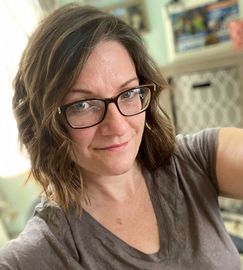- About Us
- Advertise / Support
- Editorial Board
- Contact Us
- CancerNetwork.com
- TargetedOnc.com
- OncLive.com
- OncNursingNews.com
- Terms & Conditions
- Privacy
- Do Not Sell My Information
- Washington My Health My Data
© 2025 MJH Life Sciences™ and CURE - Oncology & Cancer News for Patients & Caregivers. All rights reserved.
Taking a Look Back at CURE®’s Educated Patient® Multiple Myeloma Summit

CURE® is looking back at the Educated Patient® Multiple Myeloma Summit, a half-day virtual event to educate, inform and connect patients with multiple myeloma to a variety of experts in the field.
On Saturday, March 13, CURE® hosted an Educated Patient® Multiple Myeloma Summit: a half-day virtual event that aims to educate, inform and connect patients with multiple myeloma to a variety of experts in the field. The summit featured presentations about the various stages of multiple myeloma, emerging treatment options, and more, along with Q&A sessions where participants were invited to submit their questions to a panel of experts.
If you missed it live, you can view the entire summit here, or read our conference coverage below:
Treatments for Multiple Myeloma Are Transforming Lives
The biggest fear for many patients, according to Dr. Krina Patel of The University of Texas MD Anderson Cancer Center in Houston, is when they hear that myeloma, for most patients, is not curable. However, she notes that patient survival is increasing every few years.
‘Knowledge Is Power’ When Learning About Treatments for Late Relapsed/Refractory Multiple Myeloma
Dr. Nina Shah of the University of California, San Francisco, discusses several emerging therapies that are changing the treatment landscape in late relapsed/refractory multiple myeloma, and making the disease more livable.
Spotlighting New and Emerging Therapies in Myeloma
Despite the hype around T-cell engagers and CAR-T cell therapy in myeloma, there are other new and exciting immunotherapies not talked about that may be approved in the near future, according to Dr. Cesar Rodriguez, of the Wake Forest Organoid Research Center.
Multiple Myeloma 101: An Incurable But ‘Very Treatable’ Disease
Although a multiple myeloma diagnosis can be overwhelming for patients, Dr. Andrew Yee of the Massachusetts General Hospital Cancer Center in Boston notes that the disease is very treatable, and that patients can go on to lead full lives.
Assessing Unique Patient Characteristics Critical in Deciding Therapy Options for Early Relapse Myeloma
Several new therapies have emerged as treatment options for patients with early relapse myeloma, which emphasize the importance of assessing each patient’s unique characteristics before deciding upon the best option, according to Dr. Saad Z. Usmani, of the Levine Cancer Institute.
For more news on cancer updates, research and education, don’t forget to subscribe to CURE®’s newsletters here.
Related Content:



